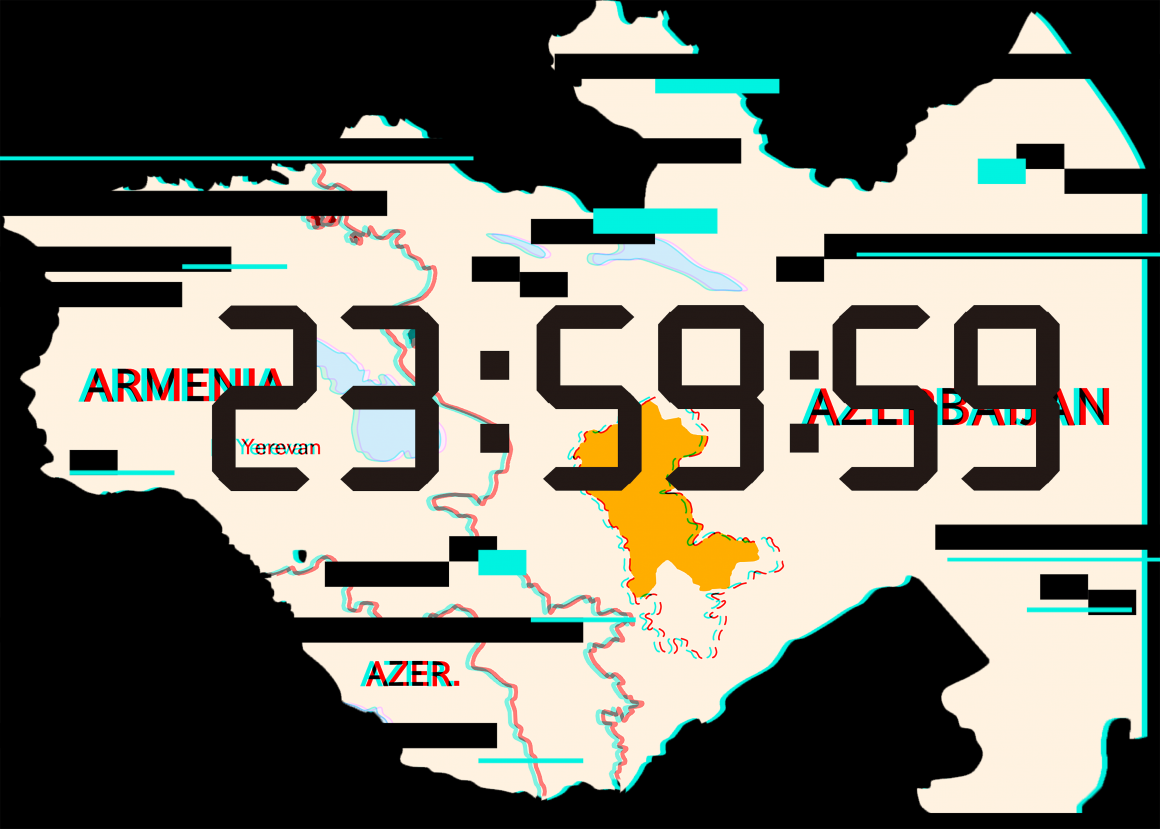
Nagorno-Karabakh disappeared in 24 hours (and the West let it happen)
By Ana Bodevan, October 24 2023—
A century after being dubbed the powder keg of Europe, another violent conflict exploded in the Balkans. For the third time in three decades, the tensions between Nagorno-Karabakh, an Armenian enclave in Azerbaijan, and the government in Baku escalated to war — this time, short, decisive and an utter defeat for Armenians. According to CNN, two weeks after the first attack was launched on Sept. 19, 2023, over 100,000 ethnic Armenians fled and were trying to cross the border to Armenia. To put in perspective, 120,000 people were estimated to live in the enclave. The de facto government of Nagorno-Karabakh has been dissolved, and the former separatist region will cease to exist as of Jan. 1, 2024.
Nagorno-Karabakh, situated at the convergence of Europe and Asia, has been a historical cauldron for centuries. Its intricate past, oscillating between the Kingdom of Armenia, Arab and Persian dominion, and eventual subjugation by the Russian Empire in 1813, laid the groundwork for the modern conflict. The roots of the dispute between Armenians and Azerbaijanis can be traced back to the Russian Revolution, leading to a Soviet-mediated arrangement where Nagorno-Karabakh retained autonomy under Azerbaijan. The dissolution of the Soviet Union in 1991 triggered a violent war, culminating in a fragile ceasefire in 1994. Despite sporadic conflicts, the region maintained precarious stability until a new, 44-day war in 2020, ending in an Azerbaijani victory.
The echoes of history were evident in this year’s offensive, justified by Baku as a strategic move to sever ties between Nagorno-Karabakh and Armenia. The warning signs were already there: the closure of the Lachin Corridor by Azerbaijani forces in December 2022 damaged the region’s food system, resulting in a humanitarian disaster. After nine months of deprivation, the Azerbaijani authorities declared an anti-terrorist operation resulting in the displacement of 100,000 ethnic Armenians.
The geopolitical landscape surrounding this conflict is intricate and multifaceted. This conflict’s geopolitical terrain is complex and multifaceted. Azerbaijan, empowered by Turkey’s support, received substantial military supplies. The countries respective presidents even met, with Turkey’s Erdogan congratulating Azerbaijan on the offensive. Armenia, which has had long-standing ties with Russia, has experienced turbulent relations as a result of recent geopolitical shifts toward Ukraine. Iran, which shares borders with both nations, is treading carefully, leaning toward Armenia in order to avert unrest among its sizeable Azerbaijani community. To further complicate the situation, Iran’s long-time enemy, Israel, is one of the main weapon suppliers to Azerbaijan. Finally, the United States is also pressured into taking a stance, not only because of a geopolitical perspective but also because of the significant Armenian diaspora in the country.
The escalation of violence in Nagorno-Karabakh in September exposes the shortcomings of Western attempts to establish robust European security in the South Caucasus. Despite theoretical endorsements of international legal principles and a model akin to Balkan conflict resolutions, the practical application has failed. The envisioned Minsk conference inclusive of Nagorno-Karabakh representatives never materialized, leaving the region in a diplomatic void.
However, despite all these intricate dynamics and the escalating crisis in Nagorno-Karabakh, the West’s response has been disappointingly passive. While Western powers have professed theoretical support for international legal principles and conflict resolution models, the practical application has been sorely lacking. The much-anticipated Minsk conference, which was intended to include Nagorno-Karabakh representatives, never materialized. This left a diplomatic void, and Azerbaijan displayed little enthusiasm for meaningful negotiations. Russia, leveraging its position as the peacekeeping force after the 2020 war, emerged as the dominant external player.
It is crucial to reflect on the broader implications of this tragedy. The swift demise of Nagorno-Karabakh not only signifies the collapse of a longstanding conflict but also exposes the shortcomings of Western attempts to establish a secure European presence in the South Caucasus. The West’s inability to prevent or mitigate the crisis raises questions about the effectiveness of its diplomatic strategies and its commitment to principles of international law.
As the world grapples with the aftermath of Nagorno-Karabakh’s disappearance, the West must confront its shortcomings and reevaluate its approach to prevent such tragedies in the future. The lessons learned from this episode should serve as a catalyst for a more robust and proactive Western diplomatic engagement, with a focus on preventing conflicts and protecting vulnerable regions from becoming pawns in geopolitical games. The tragedy of Nagorno-Karabakh should not be just a historical footnote but a stark reminder of the need for a more vigilant and effective global diplomatic apparatus.
This article is a part of our Opinions section and does not necessarily reflect the views of the Gauntlet editorial board.
